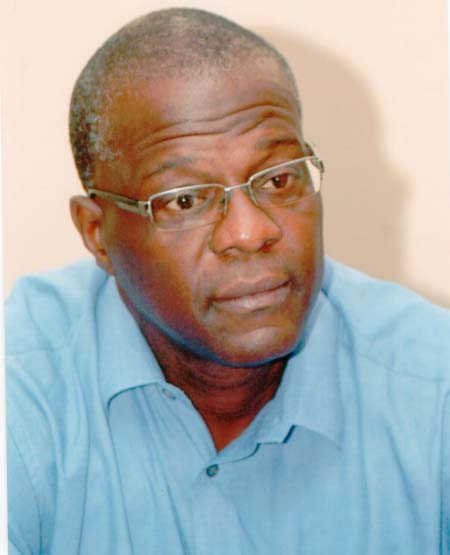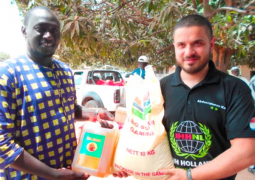
The regions where a large majority of farmers operate on less than two hectares of land, such as in Africa and South Asia, are the ones where hunger is the most widespread.
Helping smallholder farmers increase their productivity and linking them to markets is an essential way to feed the nearly one billion people in the world who go hungry today (World Bank report).
It is essential for how the world will manage pressures on food stocks in a time of scarce resources, climate change, and as a growing and more affluent global population demands more and better quality food.
It is against this backdrop that the National Agricultural Land & Water Management Development Project – Nema 2013 – 2019, (supported by the Government of The Gambia & the International Fund for Agricultural Development - IFAD) addresses this core issue for smallholder rice and vegetable producers and players along their respective value chains, with at least 23,500 rural households achieving a 25% increase in income, a 30% reduction in child malnutrition and a reduction in the “hungry season” from 5 to 2 months.
The project is fully aligned with the Gambia National Agricultural Investment Plan 2011-2015 (GNAIP, September 2010) which was developed within the framework of the New Partnership for Africa (NEPAD) Comprehensive Africa Agriculture Development Programme (CAADP).
Nema is working to consolidate the gains registered from its sister projects, especially Participatory Integrated Watershed Management Project (PIWAMP), also funded by IFAD, in building bridges, causeways and dykes to reclaim land for smallholder farmers.
PIWAMP has enabled farming families to reclaim over 34,000 hectares of agricultural land for cultivation. In the lowlands, women are primary beneficiaries, while men, women and young people are involved in activities related to upland conservation farming.
Agribusiness investment is therefore a priority for Nema because it is essential for increasing food supply, and it is equally essential for increasing incomes for the poor, about three-quarters of whom live in rural areas and where over 70% of The Gambia, depend on agriculture for survival.
Nema is working with the private sector to increase the supply of affordable food and ensure it is available to people who need it most.
The project also work with financial institutions, NGO’s, and civil society organizations to help large and small scale farmers overcome obstacles to higher productivity and become part of the agriculture supply chain through an inclusive business model. We build farmers’ access to:
Finance: Weather, pests and crop disease, land degradation and market failures make farming an inherently risky enterprise. We are working with banks, as well as Micro-finance institutions, VISACAs and other financial intermediaries which make it possible to reach more people.
Inputs: Market failures limit access to seeds, fertilizer and equipment like tractors and irrigation systems. We invest directly in agribusiness input producers, and we create innovative financing solutions to help input companies reach more customers.
Markets: Poor infrastructure like roads, transportation, and storage facilities leads to waste and limits opportunities for farmers to sell their crops. Nema is an investor in rural infrastructure projects.
The project comprises of three components,
(i) Watershed Development,
(ii) Agricultural Commercialisation and
(iii) Project Facilitation.
The three components are mutually supportive and correspond to the focal areas of investments in agricultural water supply and strategic support to value chains, and to the Gambia National Agricultural Investment Programme (GNAIP).
For all intent and purpose, I want to focus on the Agricultural commercialization component, which comprises of three subcomponents:
1) Producer organisations entailing provision of advice and skills development for farmers’ organizations and economic common interest groups, including youth employment initiatives;
2) Value chain investment comprising advice, mentoring and business development financing/ asset accumulation for enterprises; and,
3) Technical support services comprising support for public and private sector technical service providers to ensure appropriate advice, training and other support accessible to primary producers and value chain operators and promotion of certified seed supply chains in the private sector supported by competent adaptive research capacity.
The Nema project therefore actively seeks inclusive business models to help smallholder/subsistence producers transform into market-oriented producers and link them to local, regional and sometimes, international markets as a means to improve their incomes in a sustainable way. We are focused on the majority of smallholder farmers, targeting women and youth (in the six agricultural regions of the country) who have very few resources.
They lack access to the organisational, business, marketing and technical skills, as well as the finance, timely information and technology that could help them meet the quantity and quality requirements of supply chains. It is therefore always a myth to associate smallholder farmers with lack of productivity.
Author: Banky Njie is a Business Development Officer with the National Agricultural Land & Water Management Development Project (Nema), Ministry of Agriculture.
Read Other Articles In Article (Archive)
Malians have spoken, but challenges lie ahead
Aug 14, 2013, 10:47 AM

Research institute to be inaugurated as tribute to late Prof. Lamin Sanneh
Feb 20, 2020, 12:10 PM



